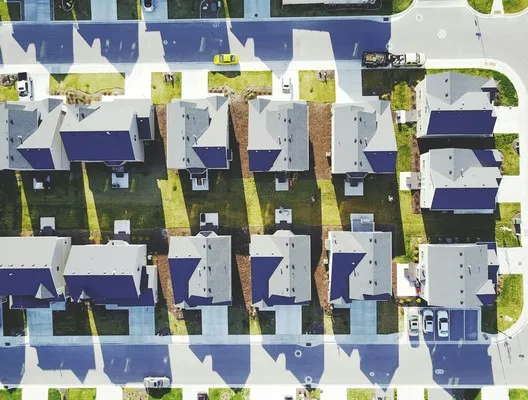Table of Contents
- What is Uneven Development?
- Historical Roots of Uneven Development
- Contemporary Manifestations of Uneven Development
- Drivers of Uneven Development
- Implications of Uneven Development
- Addressing Uneven Development
- Conclusion
Uneven development is a core concept in sociology and geography, illuminating the disparities in economic, social, and spatial development across different regions and populations. This phenomenon, driven by historical, structural, and systemic factors, is central to understanding the global inequalities that shape our world today. Uneven development does not occur by chance but emerges from specific processes linked to capitalism, globalization, state policies, and cultural factors. This article explores the origins, manifestations, and implications of uneven development while shedding light on its enduring impacts on society.
What is Uneven Development?
Uneven development refers to the unequal distribution of economic growth, wealth, and social opportunities across regions or populations. It reflects disparities in access to resources, employment, infrastructure, and public services. This unevenness is both a product of and a contributor to broader systems of inequality, reinforcing cycles of advantage and disadvantage.
From a sociological perspective, uneven development is deeply intertwined with power relations, historical legacies, and institutional frameworks. It operates at multiple scales, from global imbalances between nations to disparities within a single city. For instance, the global North is often associated with advanced industrialization and wealth, while the global South is frequently depicted as underdeveloped or developing, a division that stems from colonial histories and capitalist expansion.
Key Characteristics of Uneven Development
- Spatial Inequalities: Disparities in development between urban and rural areas or among different regions within a country.
- Economic Polarization: Concentration of wealth and industries in specific locations, leaving other areas economically stagnant.
- Social Inequality: Variations in access to education, healthcare, and housing based on geographic location or socioeconomic status.
- Cultural Divergences: Unequal representation and valuation of cultural identities, often favoring dominant groups.
Historical Roots of Uneven Development
Uneven development has its roots in historical processes such as colonialism, industrialization, and the rise of capitalism. These systems have created a global hierarchy of economic and political power, perpetuating disparities over time.
Colonialism and the Global Divide
The colonial era marked the beginning of stark inequalities between the global North and South. Colonizing powers extracted resources and labor from their colonies, enriching themselves while impoverishing colonized regions. This exploitative relationship laid the foundation for the persistent underdevelopment of many countries in the global South.
Industrialization and Urbanization
The Industrial Revolution further amplified uneven development. Industrialized nations experienced rapid economic growth and urban expansion, while non-industrialized regions lagged. Within countries, industrial hubs flourished, attracting investment and migration, while rural areas often faced neglect.
Capitalism and Uneven Development
Capitalism inherently produces uneven development due to its focus on profit maximization. Capital is concentrated in areas that promise high returns, leading to the development of core regions while peripheral regions are left behind. This dynamic is evident in the global division of labor, where low-wage labor in the global South supports high-consumption lifestyles in the global North.
Contemporary Manifestations of Uneven Development
In the modern era, uneven development manifests in various forms, reflecting ongoing structural inequalities and policy choices.
Global Scale: The North-South Divide
The disparity between the global North and South remains pronounced. Countries in the North dominate global trade, finance, and technology, while many Southern countries struggle with poverty, debt, and dependence on foreign aid. For example, countries in sub-Saharan Africa often face challenges such as limited industrialization and inadequate infrastructure, perpetuating cycles of underdevelopment.
Urban-Rural Divide
Within nations, the urban-rural divide is a prominent example of uneven development. Urban areas typically benefit from better infrastructure, education, healthcare, and job opportunities, while rural regions are often marginalized. This divide fuels migration to cities, leading to overcrowding, housing shortages, and the expansion of informal settlements.
Gentrification and Urban Inequality
In urban contexts, processes like gentrification exacerbate uneven development. Wealthier populations often move into previously low-income neighborhoods, driving up property values and displacing long-term residents. This creates stark contrasts within cities, where affluent areas coexist alongside impoverished ones.
Technological Disparities
Access to technology is another dimension of uneven development. The digital divide separates those who have access to the internet and digital tools from those who do not. This gap limits educational and economic opportunities for disadvantaged populations, further entrenching inequality.
Drivers of Uneven Development
Several factors contribute to the persistence of uneven development:
Get the full article AD FREE. Join now for full access to all premium articles.
View Plans & Subscribe Already a member? Log in.





